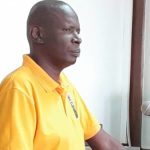It is a well-settled principle in academia that hooliganism undermines proper learning and teaching in schools. The presence of police and military establishments in many schools is a key indicator of trouble from learners. Currently, some schools are more prepared to quell hooliganism, manifesting in the form of strikes, than to focus on teaching.
Young Churchill, who later became the British prime minister, once viewed his parents as ‘foolish and stupid.’ However, growing up, he realized they were indeed geniuses. Similarly, learners in schools may be tempted to think they are more knowledgeable than their teachers, based on misguided parameters of superiority. Some engage in unprofessional conduct, such as fights over romantic interests, and such behaviors must be addressed to prevent disruptions in learning and performance.
Hooliganism is prevalent in many schools, especially government schools, where learners can be radicalized by peers and become a serious menace. Incidents range from physical altercations between students and teachers to engaging in prohibited drug use, often leading to strikes. Disturbingly, many learners arrive with good intentions to study but are easily influenced when they fall into the wrong company.
Headteachers, teachers, and boards of governors face the challenge of addressing this trend to ensure uninterrupted learning. Government schools, with their large student populations and limited resources, are particularly susceptible. Military and police deployments, while visible in schools, are considered ad-hoc solutions. A more lasting solution involves mentoring, counseling, and, where necessary, positive punishment.
Primary schools, being populated by younger learners, are partly insulated from these issues. However, problems become more prevalent in secondary schools and universities. The deployment of police and military, while visible, is seen as a temporary fix. A comprehensive approach involving mentoring and counseling is essential.
The writer, a research and spokesperson for Bugisu cultural institution and former board chairman of Mbale SSS for the Deaf, emphasizes the need for proactive measures to curb hooliganism and foster a conducive learning environment.




















